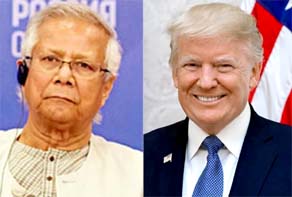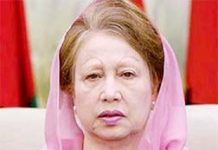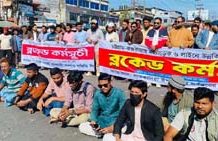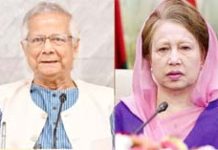C T Online Desk: The Ministry of Foreign Affairs has said they have worked with the previous Donald Trump administration, and that “it is unlikely that we will face any significant divergence on issues of mutual interest.”
“Our bilateral relationship with the United States is long-standing and multifaceted,” Mohammad Rafiqul Alam, Foreign ministry’s spokesperson, told reporters at the weekly briefing on Thursday.
He was replying to a question on whether they will be any divergence in working with the Trump administration.
“The US is one of our key trade and investment partners, and both countries share many mutual interests,” he said.
“Over the course of our five-decade relationship, we have worked with both Democratic and Republican administrations.
“A review of this long-standing relationship shows that, despite changes in government, the foreign policy, strategic positions, and national objectives of both countries remain largely consistent,” he said.
Replying to a question, the spokesperson said, they hope that the high-level conference on Rohingya crisis to be held next year will create political consensus on forming a realistic framework for the sustainable return and reintegration of Rohingyas in Myanmar.
“It will also play an important role in addressing the root causes of the crisis and in devising a timely and coordinated roadmap to address the current situation,” he said.
“Furthermore, the conference will focus on dealing with socio-economic, environmental, and security challenges, as well as minimizing the impact of long-term displacement of Rohingyas. We also expect that the conference will address increasing international commitments to resolving the issue, strengthen integrated humanitarian and development processes, and support accountability measures for crimes committed against the Rohingya community,” the spokesperson said.
Replying to a question on visa problems for Bangladeshi students, the spokesperson said, Bangladeshi students wishing to go to Europe have mainly applied for visas to Finland, Austria, Portugal, and Greece.
“In light of the complications with Indian visas, the Ministry of Foreign Affairs has directly communicated with the embassies in New Delhi of these countries and requested an alternative arrangement for physical appointments through the Bangladesh High Commission in New Delhi,” he said.
“Despite multiple requests, these countries have expressed their inability to offer alternatives without physical presence at the embassies, citing immigration laws,” he said.
He said the decision to establish embassies in Bangladesh is entirely up to the individual countries.
“However, given the growing opportunities for Bangladeshi students and workers in Europe and the increasing bilateral relations, the establishment of European embassies in Bangladesh is being seriously discussed at various levels,” he said.
Bangladesh hosts 13 embassies of European countries including the head of the European delegation in Dhaka, the spokesperson said.















